If and when you get a Pug you won't regret it, but it's important to know what you're getting into. Just like people have different personalities, so do Pugs. Don't assume that every Pug is alike because he may have a ton of energy or he may be low key as he gets older.
There are some things about pugs that aren't in all the books and that may make a pug a bad fit for you.
Let me preface this by saying that no two pugs are alike. Don't assume that because your neighbour's pug is a slug that yours will be.
Gross Generalizations that tend to be true:
Blacks tend to be busier and have more attitude than fawns.
Females tend to be pushier and more in your face than males.
Males tend to be more laid back and easy going than females.
There are exceptions to all of the above.Pug Puppies:
You will be rightfully horrified when you find that your puppy is a whirling dervish of energy who snuggles for 30 seconds and then is off again to race around the house, leaving destruction in his or her path.One of the best ways to wear a puppy out (or any busy dog) is to engage them in activities that make them work and think.
Pugs are and were bred to be companion animals. They need people. If you are going to be gone for long periods of time and/or be too tired to engage with your pug when you get home from work, then a pug likely isn't the dog for you.
House training:
Pugs will not be house trained in a month or two months or even six months. Some pick it up quickly, but most take a year or longer and may still not be 100% reliable. And most pugs won't ask to go out.Pugs generally will not just go outside and do their business while you sit nice and warm in the kitchen and have a coffee. If they are outside, you'd better be outside, too.
While some pugs can last all day while you're at work, most can't and none should be expected to.
Punishing a pug for an accident is not an effective method of house training. Praise for appropriate pottying will win the day.
Pug Quirks:
Pugs have a variety of quirks that drive some people nuts. They are nosey, inquisitive, and often right under foot.Quite a few will “table surf”. If they can get onto your dining room or kitchen table, they will. And they will consume whatever is up there.
Pugs are often quite tactile. Many are obsessive lickers—of themselves, you, the other dogs or cats, the kids, the carpet, your pillow. It's a pug thing.
Pugs can be quite vocal and can be barkers, howlers, moaners and grumblers.
Pugs are tough little dogs that have no clue how small they are. Most will not initiate a fight, but many will vigorously defend themselves or others if a fight starts.
As a deeply food driven breed, you may have issues with food aggression and resource guarding.
Many pugs are not fans of inclement weather and will resist excreting outside in the cold, rain or wind.
No dog can be trained to be “traffic smart”. And don't fool yourself that you can do this or that your neighbourhood is safe.
Pug Smarts:
Pugs are often erroneously tagged as dumb dogs. Most aren't. In fact, most are smart enough and stubborn enough to figure out how to get their way or how to outlast you.They need to do dog things—go to parks, meet other dogs, play and have fun.
Pug Energy:
While they aren't sporting dogs, all pugs need exercise.You need to be sure that your pug, regardless of energy level, gets exercise and mental stimulation.
Pug Health:
This, more than any other issue, is often the undoing of a pug owner. Like all pure bred dogs, pugs have some health issues that may crop up and they are often expensive health issues.Pugs have a very high rate of allergies—food being a big one—grains in particular. Pugs need a high quality diet. Grocery store kibble won't cut it.
Pugs have a high rate of vaccine reactions. Be watchful and conservative in your vaccination protocol.
Think seriously about insurance for your pug. It can be a life saver, literally.
I tell people to just expect an eye issue at some point in their pug's life. That way you aren't surprised if it happens.
A High Maintenance Breed:
Don't get me wrong. I love my pugs, but they are, to my mind, a high maintenance breed. They need and want a lot of attention. They shed like maniacs.They can be bossy, stubborn, and full of naughtiness. They require a fair bit of watching and managing in terms of safety, health and general training. They can and will get themselves into trouble.
They tend to need some pretty regular cleaning of nose folds, eye areas and are notoriously fussy about having their nails trimmed.
They do a thing called Reverse Sneezing. Read up about it and save yourself a trip to the emergency vet.
This is one of the most affectionate and overtly loving breeds I've ever owned. To me, they are worth the effort, expense and time that they require. But as a pug owner, you MUST be aware of the care involved in this breed.
Now that you know more of the scoop on the Pug breed, what do you think? Are you ready to tackle being a Pug parent and all that it entails? Even though the advice from PUGALUG PUG RESCUE is certainly blunt and may even sound scary, don't let it alarm you too much. You're capable of anything, including giving a Pug the time and care he deserves. Enjoy being a new parent to your fur baby and as time goes on you'll become more and more acquainted with your doggy and he'll get used to you. Enjoy your precious moments together!
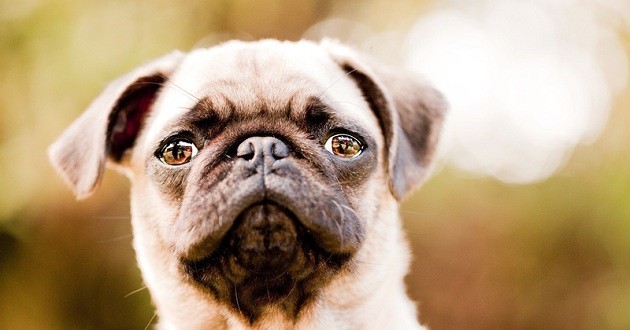
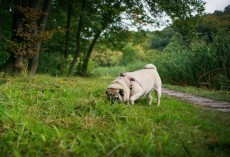
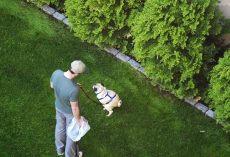
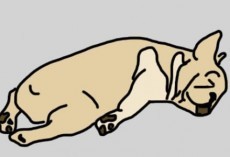
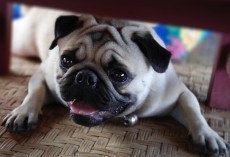

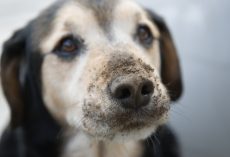
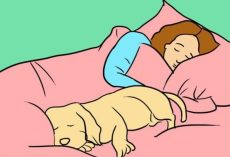
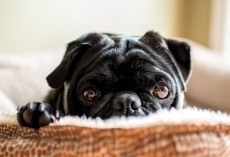

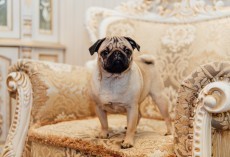
Donna Marino
- Edit
Great article! I’ve had 2 pugs, both were adopted. One is a rescue baby.
They both are /were fawns. That is the only similarity.
But, I hope to always have a pug in my life.
Jay Miller
- Edit
Shelley Greenbaum
Barb Rieben
- Edit
I have an older rescued fawn male. Dawg is very friendly and relaxed. Wants to sleep a lot. But if I’m outside he wants to be also. Wants to be in whatever room I’m in. Great dog. Lol
Sonja M Thornton
- Edit
Kristin Fick
Deb Brunelle Charron
- Edit
Very good article.
Jeff King
- Edit
Stephanie Springsted, interesting
Stephanie Springsted
- Edit
All Mizer qualities
Teri Bowers
- Edit
I have had rescue Pugs for the ladt 57 years of my life…they are the best dogs in the WORLD!!! But they do crave attention, suffer from seperation anxiety, and shed like crazy…eye problems seem to crop up with age…personally, I have been single most of my life, so my fur babies have been the center of my world. They develop the strongest, deep loving bond with their “person” and are worth any extra care you have to hive…love a Pug, and they will love you back with all their heart!!!
Gordon Mcdougall
- Edit
Carrie-Ann Purdy
Gordon Mcdougall
- Edit
The most certainly do bond with the one person my wife is the one for our boy sure I play with him all the time and he’s happy to see me when I get home but iam chopped liver when it comes to momma lol
Sarah Silz
- Edit
Ashley Helsing Lucas Helsing
Ann Wynn
- Edit
Troi Wynn read this x
Diane Shearing Claffey
- Edit
Everything is spot on!!!
Don Carpenter
- Edit
Yup, couldn’t image my life with out a pug
Bernice Bettencourt-Haynes
- Edit
Awesome
Missy Carnell
- Edit
My pug Sophie wouldn’t pee for the first time of the day until 1 p.m. And if you didn’t watch her closely at bedtime, she would go out and squat and pretend to pee so she could go to bed sooner. There was many times I had to take her back out to actually pee. Also, if it was raining and she really needed to go, she refused to go out in the rain and would hang her butt off the patio to pee so she wouldn’t get wet. When she was just a baby, 2-3 months old, she kept bringing rocks in the house and my hubby called her “dumb as dirt.” That was before he realized she was bringing in the very SAME rock each time, no matter in which direction he had thrown it back out. WE finally noticed the rock had an unusual blue streak in the exact same place, something Sophie already knew!